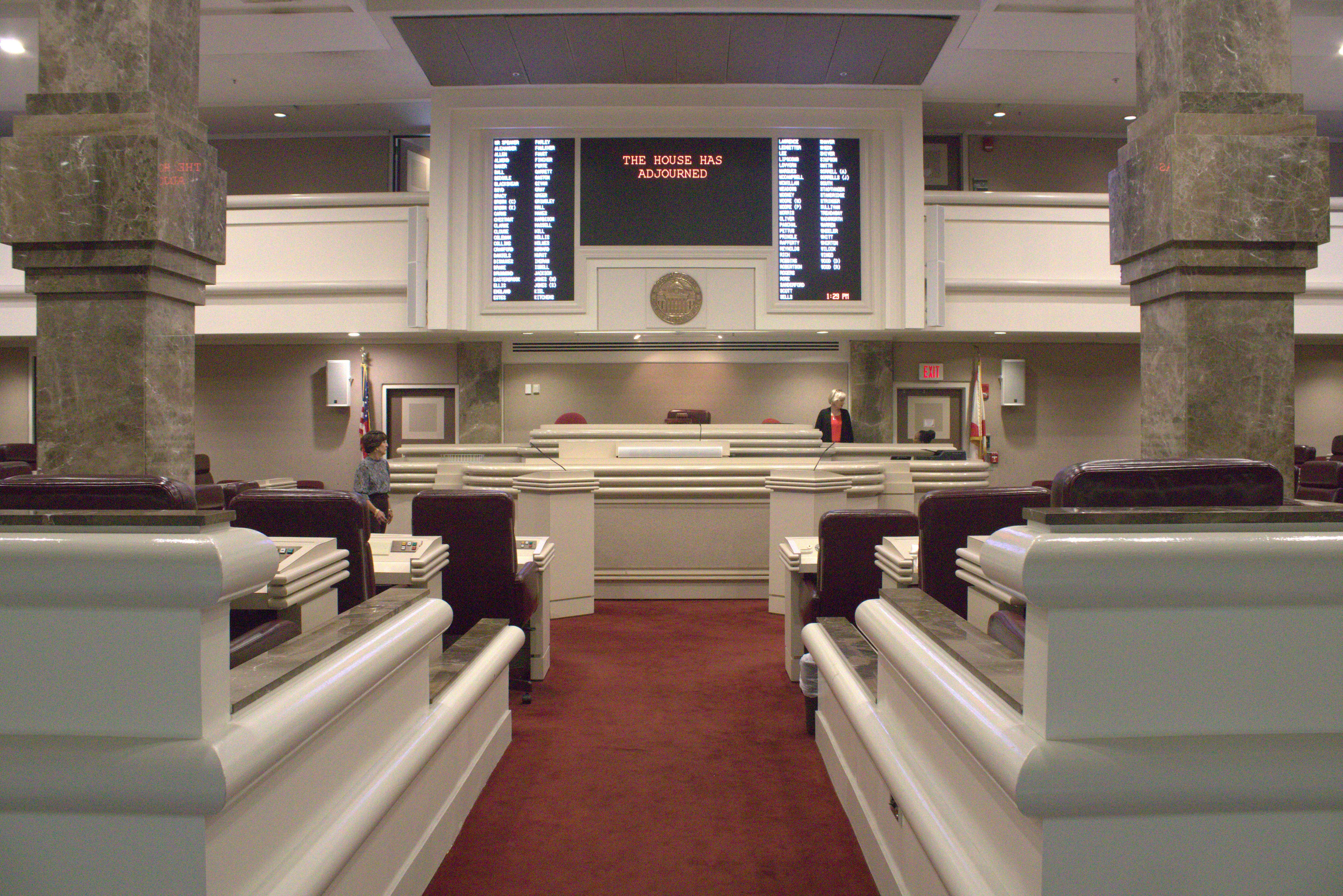The Alabama House of Representatives passed the American Rescue Plan Act appropriation on Tuesday with broad bipartisan support on a 100 to 1 vote. The Senate passed its own bill not long after the House bill passed.
House Bill 1 was sponsored by State Rep. Steve Clouse (R-Ozark) who chairs the House Ways and Means General Fund Committee. The bill appropriates $772 million in federal American Rescue Plan Act dollars.
“One issue that was very time sensitive was replenishing the unemployment trust fund up to what it was in Jan 2020,” Clouse explained. “Businesses will be receiving about a 29% reduction in the state rate."
Clouse also addressed expanding broadband.
“We have been talking about this issue for years,” Clouse said. “There will be a tremendous amount of money going to broadband."
Clouse said that the money will also be used for water and sewer projects.
“Money is going to hospitals and nursing homes,” Clouse said. “Volunteer fire departments took a big hit because they could not fundraise."
There was also money in the package to compensate counties for state prisoners being left in county jails during the pandemic.
“It [the ARPA funds] has to go through a state agency so we can audit the money to see how it was spent,” Clouse explained. “...The main thing we want to do is get this money out in the pipeline. It has to be appropriated by 2024. They have to be finished in 2026. We are talking about less than five years. Other states are doing the same thing with laying broadband cable and water and sewer projects. We are in a race so we have got to get started as quick as we can.”
“I think that was a good indication today,” Clouse told reporters. “We will see what happens in the Senate with the bill that is identical to the House bill.”
State Rep. Juandalynn Givan (D-Birmingham) was the lone opponent of the legislation.
“Is there any line items dedicated for Medicaid expansion?” Givan asked Clouse.
"No," Clouse answered.
“Is there any line items for childcare?” Givan asked.
“No,” Clouse answered.
“Is there any line items for rent assistance either for the renter or landlords?” Givan asked.
“No,” Clouse answered.
“Is there any money for public transportation,” Givan asked?
“No,” Clouse answered.
“People are sick and tired of working for the bare-bones minimum wage in this state,” Givan stated. “We are not addressing the real needs. We need to put the money back in the hands of the people who need it.”
State Rep. Ralph Howard (D-Greensboro) said, “We don’t have the matching funds,” speaking of rural small towns.
“All of those communities received American Rescue Plan Act funds directly,” Clouse replied.
Clouse went on to say that ADEM [Alabama Department of Environmental Management] will have the discretion to grant the funds to where the greatest needs are.
“They will be given favorable treatment,” Clouse said.
Howard also said he would like to see Medicaid expansion.
“I have been here a few years now and we have been talking about broadband this whole time,” Howard said. “We should expand Medicaid. The people in this state deserve to have Medicaid expanded and rural communities deserve broadband.”
State Rep. Mary Moore (D-Birmingham), agreed the money should be spent on preparing for Medicaid expansion.
State Rep. Arnold Mooney (R-Indian Springs) said the money to, “replenish the unemployment trust fund, that is essential.”
“It has to be done before the end of the month,” Clouse said of replenishing the unemployment compensation fund. The end of the month is when the state Labor Department has to set the unemployment tax rate for the year.
“This has covered a lot of needs that have to be met,” Mooney said. “Mental health: my county has had an exponential increase in mental health situations with young people because they have been forced to be cooped up. Drug dependencies have been a huge problem.”
State Rep. John Rogers (D-Birmingham) proposed an amendment to spend $5 million to provide transportation to the hospital for people in the Blackbelt and poor areas.
“I know this is an uphill battle, but I am offering it anyway,” Rogers said. “All it does is give them a ride to the hospital. They have got to get there somehow.”
“There is a finite amount of money,” Clouse said. “You have got to take it from somewhere. You are taking it from hospitals.”
Rogers said, “This is a humanitarian thing.”
“This is a bridge getting to that next tranch of money coming in May or June,” Clouse said.
Clouse asked that Rogers’ amendment be tabled.
The House voted to table the amendment on a largely party-line vote, 73 to 23.
“Next time you need to have a state agency that it was going to go to,” Clouse said.
Clouse promised to look at it when the legislature returns to appropriate the next $1.1 billion in ARPA funds.
“Let's talk,” Clouse said to Rogers.
State Rep. Thomas Jackson (D-Thomasville) said, “I want to go on the record and let people know that not one Republican Congressman or Republican in the Senate voted for this. None of them voted to give their people support.”
The House passed HB1 by a vote of 100 to 1. The Senate also passed the exact same bill in SB1 two hours later.
Speaker of the House Mac McCutcheon (R-Monrovia) told 1819 News that he expects that there will a special session later in the year to appropriate the second tranch of ARPA dollars.
HB1 will be in committee in the Senate on Wednesday, while its Senate version, SB1, will be in committee in the House on Wednesday.
“Thursday will be final passage day,” McCutcheon said.
Wednesday will be day 4 of the 2022 second special session.
To connect with the author of this story, or to comment, email brandon.moseley@1819News.com.










